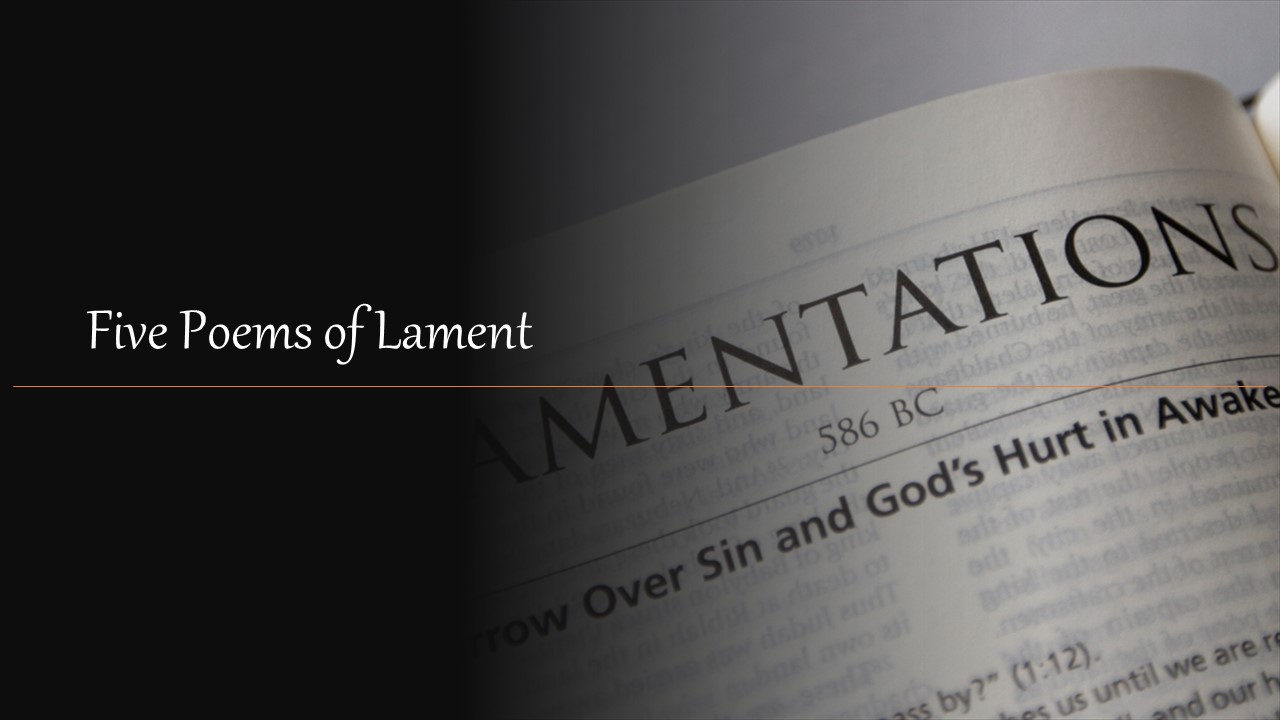The division of the Kingdom of Israel can be traced back to the reign of King Solomon, who ruled over a united Israel after succeeding his father, King David. Solomon's policies and the burden of heavy taxation led to discontent among the people. After his death, his son Rehoboam ascended the throne but displayed a lack of wisdom in dealing with the people's grievances. This prompted ten tribes, led by Jeroboam, to rebel against Rehoboam's rule, resulting in the formation of the Northern Kingdom of Israel. The Southern Kingdom of Judah, consisting of the tribes of Judah and Benjamin, remained under Rehoboam's control. This division marked a significant turning point in the history of Israel, leading to separate lines of kings, distinct political entities, and ultimately setting the stage for various conflicts and tensions between the two kingdoms.
We explore ways that we see Jesus foreshadowed in this division.

The Book of Lamentations is divided into five chapters. Each chapter represents a separate poem. In the original Hebrew, the verses in each of...

A godly mother is a woman who represents the heart of Christ to her children. She is continually aware of her influence over their...

John the Baptist, imprisoned for criticizing Herod Antipas' marriage, sends a disciple to inquire about Jesus. The disciple returns with news of Jesus' miracles...